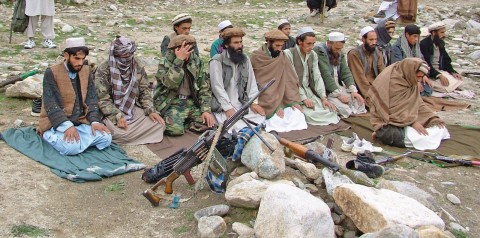
Shahid Javed Burki is a world renowned Pakistani economist. He has served as Vice President of the World Bank and Finance Minister, and his economic insights have been both appreciated and promoted by this blog. However, in his latest piece, the respected economist steps out of his area of expertise, and the political analysis that he offers is not only misguided, it poses a danger to national security.
Burki saab’s piece titled ‘Economics was the basis of Pakistan’s creation‘ is a bizarre piece of historical revisionism. Headlines are meant to be sensational enough to demand the reader’s attention, but in this case the headline is no more sensational than the piece itself – maybe less. Here is the core of Burki’s argument:
Pakistan was created not because its founding fathers thought that ‘Islam was in danger’ but for entirely economic reasons. The present rise of extremism is also owing to economic and political reasons. Those who follow it are not fighting a war of faith with the Pakistani state or the West. These people resent their exclusion from political and economic systems — both dominated by narrow elites — and some of them have opted for extreme violence as the preferred form of expression.
In order to believe this, one would have to completely ignore history including the statements of the principal actors themselves. I will not waste time here documenting the fundamental role of Islam in the creation of Pakistan. Suffice it to say that Burki walks dangerously close to the line of rejecting ‘Two Nation Theory’ – a position that has landed many people in hotter water than they care to swim. What is more troubling is the suggestion that the rise of terrorism is an expression of economic frustration rather than an expression of a violent, extremist ideology.
Burki offers zero support for his argument, which is bizarre for a professional economist – someone who would have spent most of their professional life carefully scrutinising data. Please allow me to humbly remind the esteemed economist that the Taliban have been quite clear about their motivations and goals, and never have they included anything resembling redistribution of wealth, greater access to means of production, or other remotely economic policies. In fact, they have been most explicit that they are fighting “a war of faith”, as you put it, to replace Pakistan’s Constitution with their own version of Shariah.
The Taliban have resorted to violence not because they “resent their exclusion from political systems”, as you suggest, rather they have openly termed democracy as “Un-Islamic”. They have also given a very specific 15-point set of demands, the only one that approaches economics being to “End interest based banking system”. But even this is made from a religious basis, not really economic.
What is really strange, though, is that the piece was supposedly written in response to an alleged private conversation between the author and Husain Haqqani. Actually, this background takes up almost half (if not more!) of the entire piece, and is undoubtedly the most sensational part, accusing Haqqani of terming the creation of Pakistan as “a mistake” and taking his arguments from “the house of a rich Indian businessman”. It is all very reminiscent of another tawdry affair in which gossip was given the status of evidence, except in this sequel there is not even the claim of secret chat transcripts.
Which begs the question why now? And why Husain Haqqani? The former Ambassador’s latest book has been out for over a year now, and his more recent writings have promoted an agenda of zero tolerance for terrorist groups – which is exactly what the Army chief has been saying.
A few things come to mind. First, there is the decision by the government not to hire any lobbyists to represent Pakistan’s interests in Washington. Then there is the recent embarrassment over a question of $532 million in US aid – the latest event that appears to have been greatly mishandled by the Foreign Office. The New York Times has even published an editorial asking whether Pakistan is “worth America’s investment“. Now, US Secretary John Kerry is visiting Islamabad, and cross-border firing with India is on the agenda. The power of India’s lobby in Washington is well documented, so while it is certain that Kerry will be presented with Pakistan’s perspective, it is also almost certain that he will already have had an earful from the Indians and little – if anything – from our own Embassy.
Are the powers that be trying to set up an old scapegoat for what are anticipated failures? The Foreign Office has been besieged by its own blunders. It does not need someone meddling in Washington to make them look inept. More worrying, though, is why this strange attack on Haqqani is being tied to this dangerous narrative that claims the Taliban are not actually religious extremists. Haqqani has warned about the rise of religious extremism in the country since long, and it took the deaths of 141 innocents in Peshawar to get the powers that be to finally see the light. Let’s not turn back now.
![]()





